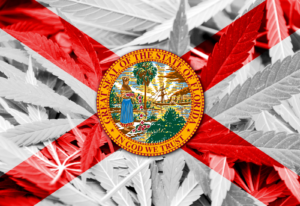Yesterday, the Mexican Supreme Court ruled several provisions unconstitutional in the General Health Law and the Federal Criminal Code, because they prohibit cultivation of ≤1% THC cannabis for non-medical or research purposes. The Court ruled that unconstitutionality derives from the provisions violating the protected freedom to work and to trade.
The ruling followed the Court’s issuance in June 2021 of a General Declaration of Unconstitutionality in relation to the General Health Law’s prohibition on individual adult (recreational) cannabis use, which legalized activities related to individual adult use of cannabis, such as growing for personal use and consumption.
In yesterday’s decision, the Court unanimously agreed that provisions prohibiting non-medical/non-research cultivation were ‘unnecessary’ and ‘disproportionate’ for activities involving products containing ≤1% THC (THC is the psychotropic component of cannabis and still largely illegal in Mexico). The Court reasoned these activities and products relate to industrial applications, which should not be deemed to affect public health and public order. The Court stated it believes it is possible to complete the commercialization process of ≤1% THC products through regulation, without having to resort to absolute prohibition.
Accordingly, the ruling allows for cannabis cultivation, as long as the plant will produce ≤1% THC concentrations, subject to monitoring, control and safety measures that will be imposed eventually by the National Commission for the Protection Against Sanitary Risks (COFEPRIS).
The importance of this ruling cannot be overstated: it opens the door to industrial hemp and hemp-CBD products, not just for medical, cosmetic or therapeutic purposes, but also for industrial applications for which Mexico already has value chains in place, such as auto parts, textiles and construction, among many others. It also fulfills our prediction that last June’s decision to authorize adult-use marijuana could have outsize effects on low-THC hemp. There is no doubt now that the position of the Court has been clear and consistent in relation to the cannabis industry, and yesterday’s ruling represents a second warning to lawmakers to catch up.
The judiciary has been leading the push to legalize the Mexican cannabis industry while lawmakers drag their feet. Yesterday’s ruling may motivate state legislatures to accelerate their passage of local hemp regulations. Indeed, as we reported a few months ago, many states legislatures are considering local hemp bills currently.
For cannabis business operators planning expansion into the Mexico market, these are exciting (and fast-moving) times. If you have not already developed a market entry strategy, including entity formation and trademark registration, see our post on “next steps”. Now is the time.
¡Vamos México!

























